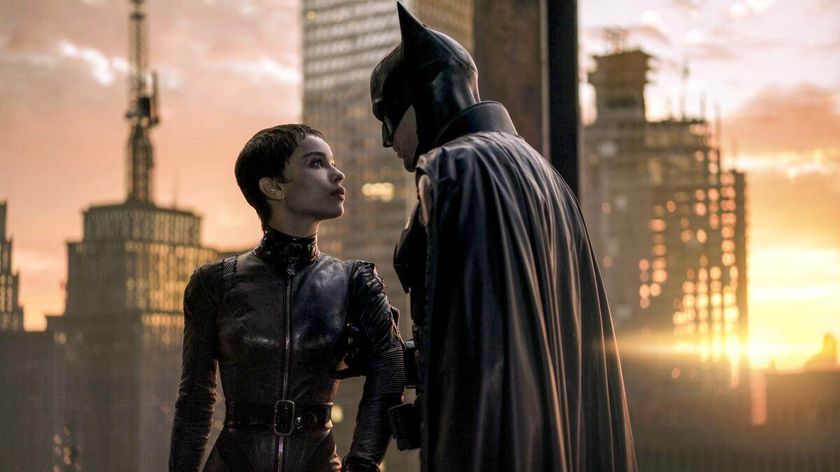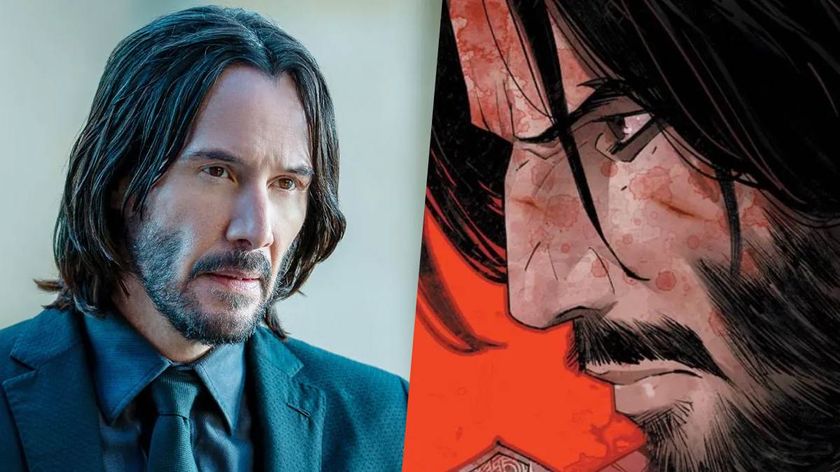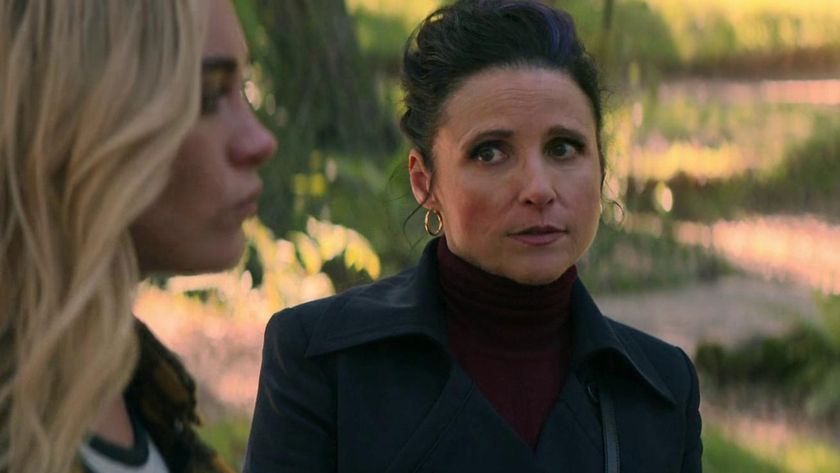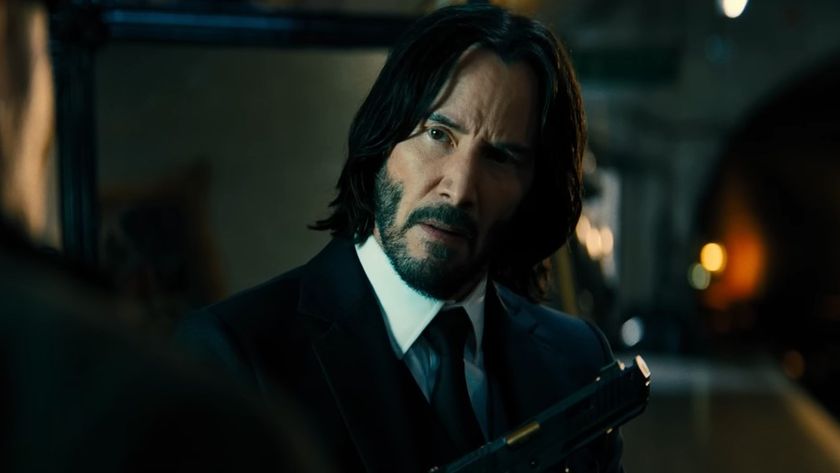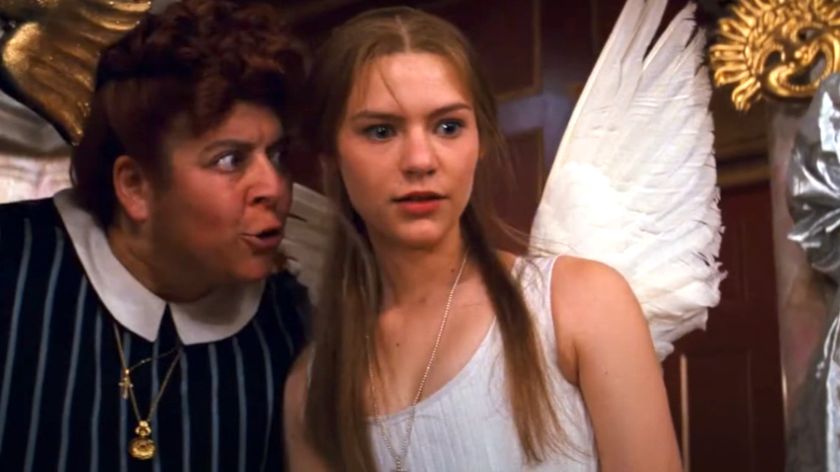The Evolution Of Antonio Banderas
A screen history of Spanish machismo...

Laberinto De Pasiones (1982)
Antonio Banderas' career got off to a flying start. Following an appearance in Pestañas Postizas , he starred in the first of many collaborations with acclaimed Spanish auteur Pedro Almodóvar.
Laberinto De Pasiones ( Labyrinth Of Passion ) was Almodóvar's second feature, and it comes loaded with staples (sexuality, flamboyant characters, crazy plotting) that would define his work. Banderas plays a gay Islamic terrorist caught in an affair with an emperor's son.
Spanish Machismo? This is high on camp, even by Pedro's standards.
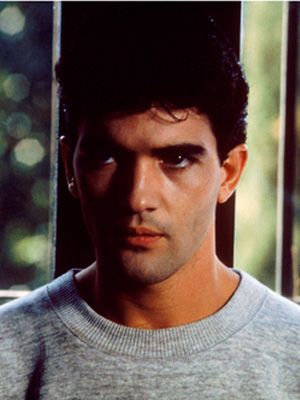
Matador (1986)
Banderas plugged away on several Spanish Civil War flicks over the next few years, before reuniting with Almodóvar for Matador . The actor stepped up to the lead role here, as bullfighter Ángel.
Determined to prove his masculinity to a friend, he bungles an attempt to force himself upon a woman, and accidentally takes the rap for several murders when confessing the attempted rape to the cops.
Spanish Machismo? On the surface yes (he's training to be a bullfighter), but underneath it's a different story.
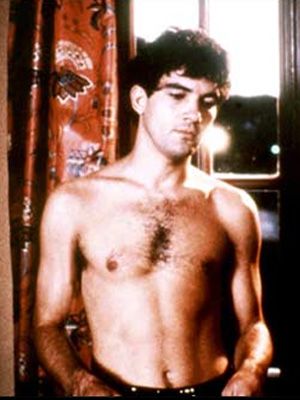
Law Of Desire (1987)
Banderas squeezed in another couple of little-seen homegrown movies before starring in yet another Almodóvar movie. Here he plays a young man obsessed with gay film director Pablo (Eusebio Poncela).
After a night of passion, Antonio (Banderas) becomes obsessed with Pablo, and murderous antics ensue. There's also an interesting subplot following Pablo's sister and her equally convoluted affairs. Like Matador , amnesia plays a key role in the plot, but Law… has an altogether darker tone.
Spanish Machismo? He takes himself a bit too seriously.
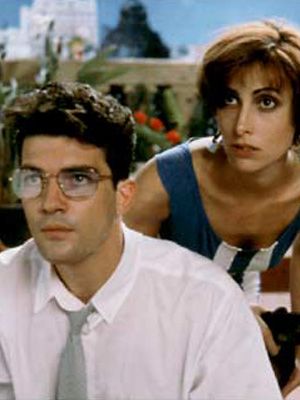
Women On The Verge Of A Nervous Breakdown (1988)
Following Law Of Desire , Banderas appeared in a couple more movies, but it wasn't long before he was back under the tutelage of Almodóvar, and who can blame him when the director was yielding such uniquely interesting works.
Women… brought Almodóvar to wider acclaim, earning a Foreign-language Film Oscar nod. Banderas' Carlos is one of several inadequate men shaking up the lives of the put-upon ladies of the title.
Spanish Machismo? There's not much of that evident here.

Bajarse Al Moro (1989)
Continuing an exceptionally busy first decade in film, Banderas shot two more movies ( El Placer De Matar , Baton Rouge ) before this one.
Here he plays Alberto, a cop who's in a relationship with Chusa (Verónica Forqué), who makes a living on the side as a drug dealer. He's not averse to helping her smuggle loot, though their fellow flat-sharers look set to cause problems. The pair took home acting awards at the 1990 Fotogramas de Plata.
Spanish Machismo? Again, he's pretty ineffectual here...
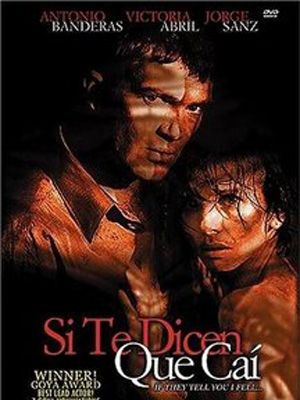
Si Te Dicen Que Ca (1989)
Translated as If They Tell You I Fell , this uniquely Spanish tale is adapted from a novel by Juan Marsé. Banderas stars as Marcos in '40s flashbacks (which make up the bulk of the story).
The stories, which seem to be a blend of fact and local myth, are framed by the modern day kids who tell them. Marcos was an anarchist during the Civil War, and he spends most of his time hiding from the authorities and trying to track down his lost love, while his brother Java does what it takes to survive.
Spanish Machismo? He's strong in his convictions.
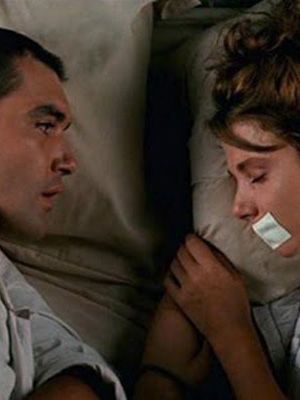
tame! (1990)
Workaholic Banderas crammed in a few more local movies before another encounter with Pedro Almodóvar. Released as Tie Me Up! Tie Me Down! in English-speaking territories, this further inflated the Spanish director's growing overseas fanbase.
It was certainly controversial: Banderas' Ricky has recently been signed out of a mental institution, and sets about kidnapping porn star and former conquest Marina in an unflinchingly brutal manner. As usual, Almodóvar manages to find some tenderness in writ large characters facing extreme circumstances.
Spanish Machismo? He lets his sense of entitlement carry him away.
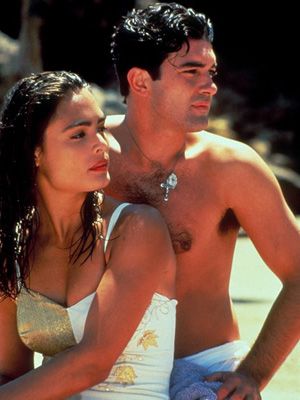
The Mambo Kings (1992)
The Mambo Kings marked Banderas' first foray into American movies. He and Armand Assante play brothers who earn a rhythmic living in Cuba, before being forced to flee by imposing gangsters.
The pair pitch up in America, where they use their soulful crooning to score jobs, women and a bit part on I Love Lucy , though memories of the past are a constant source of heartache. The film earned solid reviews, but didn't generate much interest at the box office.
Spanish Machismo? That's traded in for South American soulfulness here.

Il Giovane Mussolini (1993)
Next up for Banderas, he starred as the notorious Italian leader in a TV miniseries. The movie follows his rise to power from being a young unskilled worker to the head of the Italian Socialists.
Banderas' casting doesn't feel too out of synch, as a Benito Mussolini is portrayed as something of a ladies' man throughout, and he has the raw charisma to help him convincingly rally and rile the masses in equal measure.
Spanish Machismo? Italian Fascismo, more like.

Dispara! (1993)
This drama saw Banderas playing opposite Francesca Neri: she's Ana, a circus performer, and he's Marcos, a reporter sent to interview her. Things start well enough, as he's beguiled by her equestrian antics and the pair fall quickly in love.
Things take a dark turn when Ana is gang-raped by three mechanics. As her act requires her to be a crack shot with a rifle, it's not long before she has gunned down her attackers in revenge, but soon the police are after her.
Spanish Machismo? It's actually Ana who takes the need for vengeance into her own hands here.
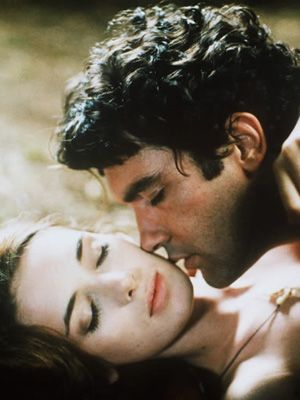
The House Of The Spirits (1993)
Banderas joined a heck of a cast for this so-so adaptation of Isabel Allende's novel. Meryl Streep, Jeremy Irons and Glenn Close are members of a family that experience various ups and downs across several decades in Chile.
Streep's clairvoyant is at the heart of the story, married to Irons' insensitive landowner. Banderas arrives later, when he begins a relationship with Irons' daughter, Winona Ryder, much to her pa's consternation. The various clashes of tone never quite gel, meaning the magic-infused story doesn't resonate as keenly on screen as it did on the page.
Spanish Machismo? He's got some of that revolutionary zeal here.
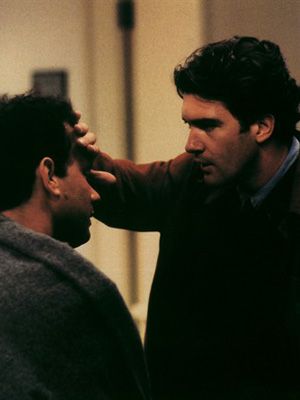
Philadelphia (1993)
A major breakout role for Banderas in terms of his US career, Philadelphia was one of the first mainstream American movies to tackle the topic of Aids, and Tom Hanks landed his first Oscar playing Andrew Beckett, a lawyer with the disease who sues his employers for unfair dismissal.
Banderas plays Miguel, Andrew's lover, but the movie's key relationship is the one between Andrew and his homophobic lawyer Joe (Denzel Washington).
Spanish Machismo? Banderas' earlier Spanish work had proven that he wasn't going to back down when it came to dealing with topics that were still taboo in US cinema.
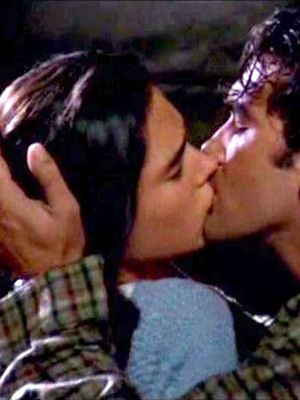
Of Love And Shadows (1994)
Banderas was sticking to what he knew, playing another Chilean facing political strife. Hollywood was unsurprisingly keen to cast him as the sensual Latin lothario, a type he threw himself into with gusto.
As photographer Francisco, he opens up the heart (and blouse) of magazine editor Jennifer Connelly, showing her the real cost of the Pinochet regime. Like The House Of The Spirits , this was also based on an Allende novel.
Spanish Machismo? Casting directors were taking advantage of his brooding presence.
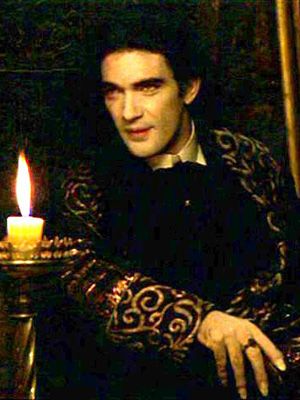
Interview With The Vampire (1994)
Banderas' ascent continued with a role in what was the biggest movie of his career at that point. In a veritable 'who's who' of the day's hunks, he joined Brad Pitt, Tom Cruise and, er, Christian Slater in the Anne Rice adaptation.
It earned mixed responses, with critics targeting the pace and over-emphasis on lavish set design, but it's well worth watching for decent performances and its intriguing bloodsucking mythology. Banderas is Armand, a vamp who takes Pitt's Louis under his wing after his run-in with Lestat.
Spanish Machismo? Somewhat lacking, as he's caked in pale make-up.
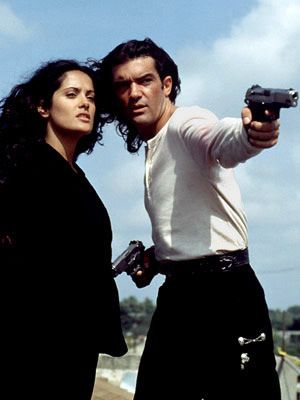
Desperado (1995)
After appearing in Miami Rhapsody , a romcom in which Sarah Jessica Parker has misgivings about men and her career (shock horror), Banderas took the lead here, playing one of his defining roles: El Mariachi.
A kinda sequel-cum-remake to Robert Rodriguez' micro-budget El Mariachi , this spaghetti-western influenced actioner boasts some incredibly inventive gunfight sequences, and brought a feisty Salma Hayek to public attention while establishing Banderas' profile.
Spanish Machismo? Hell yeah!
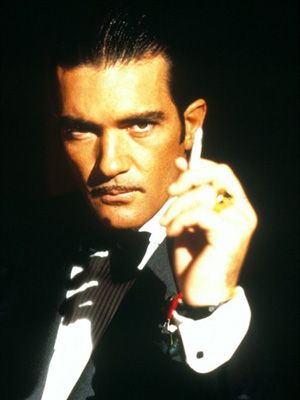
Four Rooms (1995)
In the same year as Desperado , Banderas starred for Robert Rodriguez again in his segment in portmanteau piece Four Rooms . Tim Roth's porter Ted links the quartet of stories, each set within a different hotel room.
In 'The Misbehavers', Banderas tasks Ted with taking care of his two children while he leaves to attend a party with his wife. All manner of inappropriate antics ensue, pushing the bellboy to breaking point right before he enters Quentin Tarantino's closing chapter. Not essential viewing, but interesting for anyone obsessed with QT and Rodriguez in that era.
Spanish Machismo? He has little to do in what amounts to an extended cameo.
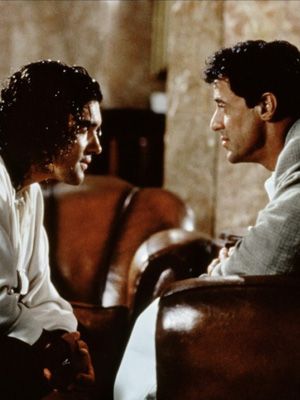
Assassins (1995)
Despite owning the electric action of Desperado , even Banderas failed to perk up this inert thriller. Stallone (who was slipping into a major career doldrum at this point) is an assassin who wants out, and Banderas is a young rival.
Julianne Moore wastes her talents as the mark the pair vie for, and director Richard Donner fails to recreate any of his Lethal Weapon pep and spark. Oddly, the script was by the Wachowskis and Oscar-winner Brian Helgeland.
Spanish Machismo? His oily locks and ridiculous dialogue render him a caricature.
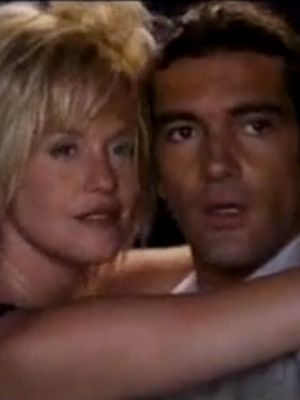
Two Much (1995)
Banderas failed to capitalise on his burgeoning fame with another limp thriller ( Never Talk To Strangers ) before coming onboard this forgettable romcom.
The plot sees Banderas' Art pretending to also be his own (fake) twin brother so that he can date two sisters (Melanie Griffith and Daryl Hannah). The film was savaged by critics, but Banderas probably wasn't too bothered as he met his future wife, Griffith, on set.
Spanish Machismo? Enough for two.
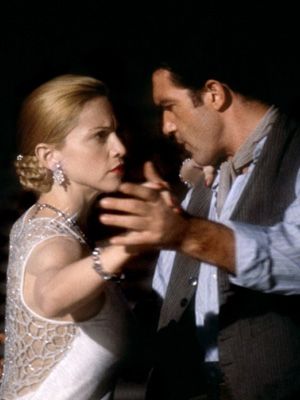
Evita (1996)
Banderas must have seemed like a natural choice for Evita , which offered his next high-profile role. He had proven the strength of his pipes on a number of occasions, and was also well versed in South American revolutions.
Here he's Ché, the narrator who pops up in various guises throughout the movie, tunefully keeping us in the loop. Madonna turns in a fairly decent performance, and the songs and set design are impressive.
Spanish Machismo? Banderas arguably reaches the upper limits of masculinity possible for someone banging out a showtune.
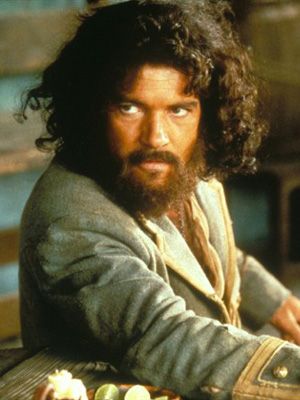
The Mask Of Zorro (1998)
Another signature role for Banderas came in this revival of the masked swashbuckler. Producer Steven Spielberg and director Martin Campbell assembled a decent set of ingredients for a pitch perfect adventure.
Banderas makes for a dashing hero, Anthony Hopkins could do the ageing mentor schtick in his sleep, and Catherine Zeta-Jones is on fire as a damsel who can hold her own. It falls down slightly when it comes to the villains, but thanks to a healthy dose of matinee action, you won't be too bothered.
Spanish Machismo? Banderas plays the swashbuckling Spaniard with aplomb.
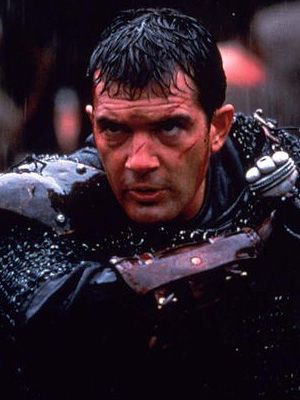
The 13th Warrior (1999)
Eschewing the multiplex-unfriendly title of the Michael Crichton source novel Eaters Of The Dead , The 13th Warrior shamelessly wastes a premise ripe with cinematic potential.
The book purported to be a genuine historical document, detailing the time Arab traveller ibn Fadlan spent with the 'real-life' Beowulf. Murky action sequences and a morose pace hint at the problems that blighted production.
Spanish Machismo? His accent is impossible to place, with his supposed Arabian heritage hinted at with a thick smudge of guyliner.
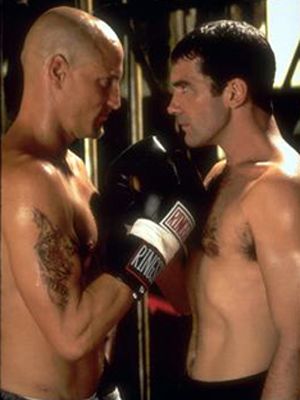
Play It To The Bone (1999)
Director Ron Shelton had plenty of experience with sports movies ( Bill Durham , White Men Can't Jump ), but he had less success when it came to boxing, apparently his favourite sport.
Banderas and Woody Harrelson play two best bud pugilists who are offered a title shot if they can show up for a bout in Las Vegas. The lads' matey banter isn't well serviced by a weak script, which leaves you wishing they'd get a pummelling way before they step into the ring.
Spanish Machismo? Yeah. He is a boxer, after all.
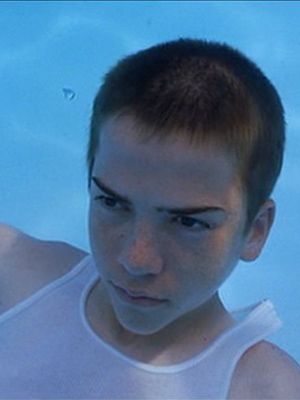
Crazy In Alabama (1999)
Antonio Banderas cast his wife Melanie Griffith in the lead role of his directorial debut. She plays an abused wife who slices off her husband's head and keeps it in a hat box when she heads to Hollywood to become a star. Her well-meaning nephew gets caught up in a parallel plotline.
There are certainly shades of Almodóvar evident in Banderas' style - colourful characters, vibrant sense of place, surreal plot lurches - throughout his competent first movie.
Spanish Machismo? There's none of that evident here.
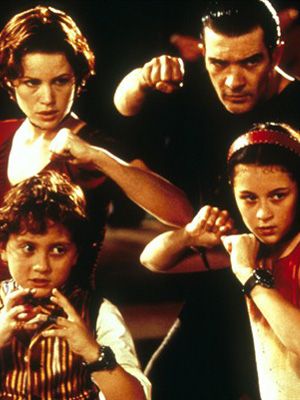
Spy Kids (2001)
Banderas reteamed with Robert Rodriguez for the first in the the director's kid-friendly flicks: as well as continuing with this four-strong franchise, Rodriguez has also made The Adventures Of Sharkboy And Lavagirl 3-D and Shorts .
This first instalment was surprisingly fun wish-fulfilment stuff, with RR's trademark energy and enough hat-doffs to keep attending guardians amused. Patience began to wane in the next two instalments though, and the franchise had something of a shake-up with the recent Part IV. Banderas has so far appeared in every follow-up too, but the focus is always firmly on the pint-sized stars.
Spanish Machismo? The movies aren't his manliest, but he still gets to play a superspy.
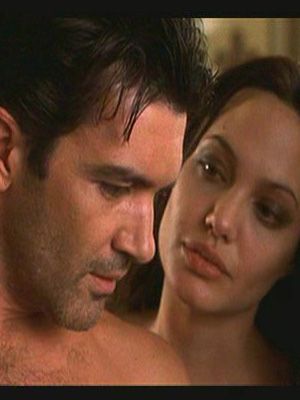
Original Sin (2001)
This supposedly erotic thriller thought that it could just shove Banderas and Angelina Jolie together and expect fireworks. It's a shame that their only screen pairing to date was such a lifeless, laughable affair.
It doesn't scrimp on nudity, so some patrons will obviously get what they came for, but the boffing is stitched onto a pathetic, tension-free excuse for a thriller, with Banderas and Jolie both awkward and failing to convince.
Spanish Machismo? Banderas was playing another Cuban here.
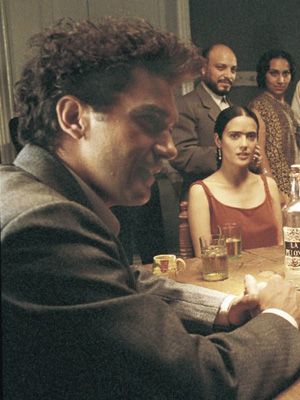
Frida (2002)
This was a passion project for Banderas' Desperado co-star Salma Hayek, who goes full-ugly for the role of the monobrowed artist. She's joined by a bounty of acting talent in the movie: Alfred Molina is her husband (and source of much grief) Diego Rivera, Geoffrey Rush is Leon Trotsky and Ed Norton plays Nelson Rockefeller.
If the film never quite hits the heights of the greatest biopics, it does at least boast several top performances and some evocative visual flourishes.
Spanish Machismo? Banderas was back in rebellious mode as Mexican painter David Alfaro Siqeuiros.
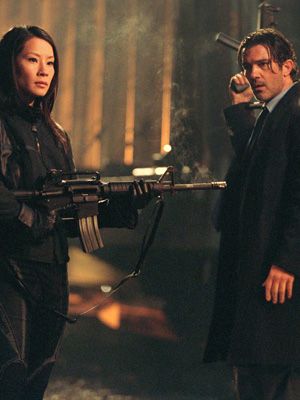
Ballistic: Ecks vs. Sever (2002)
Banderas co-starred with Lucy Liu (who also appeared in Play It To The Bone ) in this turgid action thriller, which had audiences wondering what had happened to the badass from Desperado .
The pair play rival agents who are forced to team up to stop some nefarious nanobot scheme or another. Liu and Banderas should have been an explosive combo, but the nonsensical plot and duff action sequences helped this earn the ignominy of 0% on Rotten Tomatoes.
Spanish Machismo? Even Banderas isn't cool enough to survive a stinker like this.
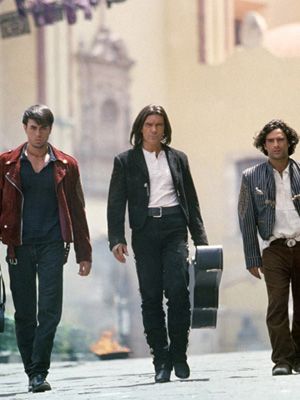
Once Upon A Time In Mexico (2003)
Those wondering where that badass from Desperado had gone got their answer with the third entry in Robert Rodriguez' El Mariachi trilogy. Banderas and Hayek make a sensational team (in flashback at least), and the supporting cast (namely a cool-as-fuck Johnny Depp and pre- Wrestler Mickey Rourke) have a gas.
There's a little too much overly-complex plotting to grapple with, but it doesn't really matter when the action is so assuredly handled, and the cast are so eminently watchable.
Spanish Machismo? That guitar case full of weaponry guaranteed a return to form.
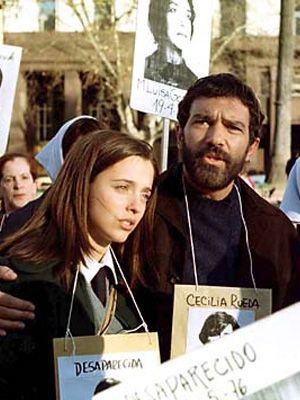
Imagining Argentina (2003)
Playwright and screenwriter Christopher Hampton ( Dangerous Liaisons , A Dangerous Method ) directed his own script here, with heavy-handed results. Set during Argentina's Dirty War of the '70s, Emma Thompson plays a journalist kidnapped by state forces.
Banderas is her fraught husband, and he tracks her down with the aid of his psychic visions. The magical-realist slant sits uncomfortably with the real life tragedy and some unflinchingly brutal scenes.
Spanish Machismo? He wears a pretty decent beard; does that count?

Shrek 2 (2004)
Liberally cashing in on Banderas' Zorro persona (the outfit, the sword, the initial carving), Puss In Boots has remained one of the Shrek franchise's constant pleasures, so it's no surprise he has his own spin-off (which reteams him with Salma Hayek) coming later this year.
Puss is originally hired to assassinate Shrek, but he ends up joining the ogre and Donkey on their quest. He stayed along for the ride in Shrek The Third (dire) and Shrek Forever After (much better).
Spanish Machismo? Possibly his coolest character yet...
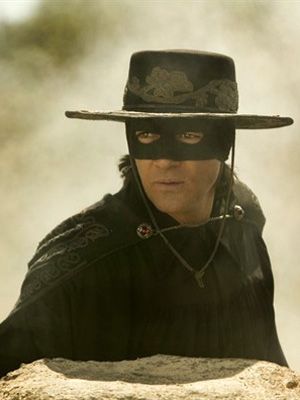
The Legend Of Zorro (2005)
Banderas, and most of the key talent, returned for a belated, only-OK sequel in a film that lacked the vibrancy of the original. The comedy is upped to a degree that's fatal to the zip and pace.
Catherine Zeta-Jones also struggles, as inane plot devices conspire to keep her away from Banderas, starving the movie of its chemical crackle. The generational shift means Tony Hopkins is traded in for an irritating moppet. Cheers for that.
Spanish Machismo? That's up in smoke, along with our hopes of decent new franchise.
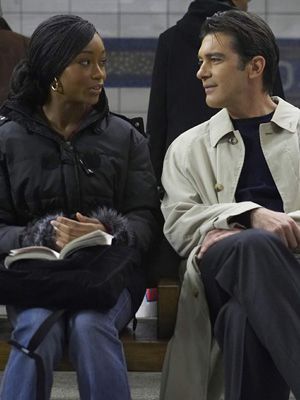
Take The Lead (2006)
Formula is king here, but that doesn't prevent a predictable dance flick from being proficiently enjoyable. Banderas' character, Pierre Dulaine, is based on a real-life figure, who introduced a ballroom dancing program to inner-city schools.
Banderas' suave instructor has a ragtag bunch of stereotypes to whip into shape in a plot that offers zero surprises, but it really flies during the dance sequences.
Spanish Machismo? He's more macho than you'd expect from a ballroom dancing teacher.

Summer Rain (2006)
Banderas' second movie as a director feels a little more 'personal', though the meandering coming-of-age tale failed to find a substantial audience.
He's got a talented young cast under his wing, as two friends (one sick with kidney disease) learn lessons about life and love over the course of a long summer. Banderas is said to be prepping sci-fi thriller Solo as his next directing project.
Spanish Machismo? There's plenty of Spanishness, not so much machismo.

My Spy (2008)
This had the equally awful title My Mom's New Boyfriend for its American release. Colin Hanks stars as the FBI agent who's a little overprotective of his newly-fit mum, Meg Ryan.
Things are complicated further when he has cause to spy on her new love interest, La Banderas, who might just be planning a high-stakes heist. Generic romcom dreck ensues.
Spanish Machismo? He's auctioning it off extremely cheaply here.
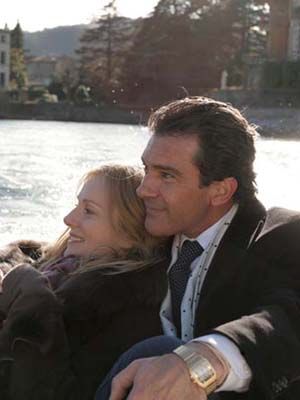
The Other Man (2008)
Banderas' next movie saw him sharing the screen with Liam Neeson and Laura Linney, though the star calibre fails to raise the inherent quality of this dud.
After Peter's (Neeson) wife dies, a quick raid of her computer suggests she'd been having a fling with slick playboy Ralph (Banderas). Against his better judgement, Peter decides to investigate, and ends up befriending her fancy man in Milan, though it's impossible to get over the sheer implausibility of it all.
Spanish Machismo? His enviable lifestyle isn't all it seems.
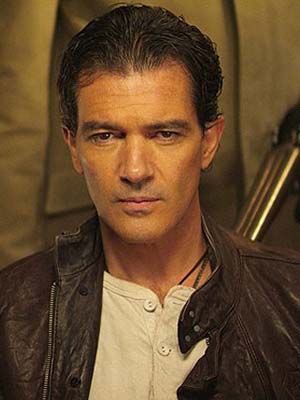
The Code (2009)
Once again, Banderas was joined by a decent cast (Morgan Freeman, Radha Mitchell, Tom Hardy) for another disappointing straight-to-DVD number.
Keith Ripley (Freeman) is a veteran thief, and Gabriel Martin (Banderas) is the young gun he recruits to help with one last job. The Russian mafia and Keith's goddaughter, Alexandra, are on hand to stir up tensions between the two tea-leaves, before the film ensures its DTV status with a succession of eyebrow-raising twists.
Spanish Machismo? The script doesn't give him the chance to shine.

You Will Meet A Tall Dark Stranger (2010)
Woody Allen keeps churning them out at an admirable rate, and while his prolific output may never reach the heights of his vintage best, they're never less than enjoyably watchable ( Cassandra's Dream notwithstanding).
Here he plays with themes of fate, superstition and human ineffectuality, with a bunch of plot strands of various levels of success. Banderas turns up as the boss who catches Naomi Watts' eye while her relationship with Josh Brolin falters.
Spanish Machismo? He's basically drool material here.
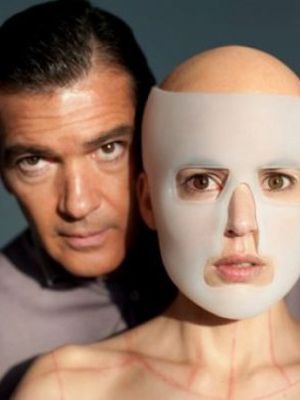
The Skin I Live In (2011)
The Skin I Live In (released this week) sees Banderas reunite with director Pedro Almodóvar for the first time in more than 20 years. He plays Robert Ledgard, a plastic surgeon obsessed with the creation of human skin.
It's hard to say too much without veering into spoiler territory, but it makes for essential viewing. It's a joyfully unconventional horror, and was one of our favourite movies screened at this year's Cannes Film Festival, so go see it!
That's not the last you'll see of Banderas this year though, as he also has roles in Black Gold , and Puss In Boots , and next year he's rocking up in Steven Soderbergh's star-packed action spectacular Haywire .
What's your favourite Antonio Banderas movie? Tell us below!

I'm the Editor at Total Film magazine, overseeing the running of the mag, and generally obsessing over all things Nolan, Kubrick and Pixar. Over the past decade I've worked in various roles for TF online and in print, including at 12DOVE, and you can often hear me nattering on the Inside Total Film podcast. Bucket-list-ticking career highlights have included reporting from the set of Tenet and Avengers: Infinity War, as well as covering Comic-Con, TIFF and the Sundance Film Festival.
